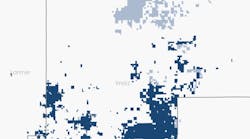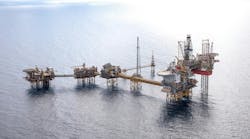Brazil's oil and gas industry is looking at some highly significant changes following what officials call the world's largest oil discovery in 30 years—the famed presalt layer.
Dilma Rousseff, chief of staff to Brazil's President Luiz Inacio Lula da Silva and chairman of the board of state-owned Petroleo Brasileiro SA (Petrobras), said her country will exploit the presalt layer for social betterment.
"With the creation of the New Social Fund, Brazil will create a public savings account that funnels presalt revenue into education, science, and technology as part of our fight against poverty," Rousseff said.
Does that sound a little ominous? One thinks immediately of the problems now arising in nearby Venezuela where President Hugo Chavez has turned state-owned Petroleos de Venezuela SA into a cash cow for social development.
Unfortunately, that cash cow is getting leaner all the time, while its milk is on the verge of drying up. Are we going to see the same thing happening to Petrobras?
Unexpected windfall
Rousseff recently wrote that a newly proposed development model is designed to turn the unexpected windfall from the presalt layer towards the public good. To ward off the future oil "curse," she said Brazil is taking "bold steps" along a tightrope.
On one side is Brazil's commitment to remain a reliable development partner to foreign governments and energy companies. On the other is Brazil's desire to control its own resources and use their revenues to "fuel our fight against poverty and improve social equality."
She said, "What's proposed is a New Social Fund that not only would keep these efforts on track for generations to come, but would help shield the economy from the potentially destructive impact of a resource windfall."
She added, "Also helping to fend off the 'curse' is the hard-earned fact that the oil bonanza arrives at a diverse economy and a land rich in many natural resources."
Booming economy
Rousseff said, "Brazil's booming economy, expected to grow about 4% next year, was attractive to foreign investors well before the discovery of the massive pre-salt oil reserves."
Not least, she claimed, "The new legal and regulatory framework submitted to the National Congress aims to preserve this allure."
In the newly outlined production-sharing system, according to Rousseff, "foreigners will remain welcome to bid for contracts to explore and develop oil in association with Petrobras."
One cannot fault Brazil for seeking to use its newly found oil resources for social betterment. However, while aiming to make its way into the brave new world of social betterment, Brazil runs the risk of drawing too many resources away from Petrobras.
Let us hope that the social planners in Brazil are more amenable to reason than their counterparts in Caracas have been.
More Oil & Gas Journal Current Issue Articles
More Oil & Gas Journal Archives Issue Articles


